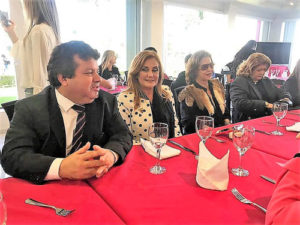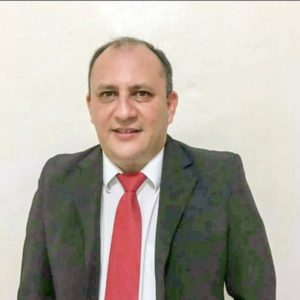Espanhóis ministram workshop no Congresso do HUM
Simulação Realística Aplicada à Educação. Este é o tema de um dos workshops do I Congresso do Hospital Universitário Regional de Maringá (HUM), que ocorre entre os dias 11 e 13 de outubro, juntamente com o Congresso Médico de Maringá. Os eventos comemoram os 30 anos do curso de medicina da Universidade Estadual de Maringá (UEM) e do Hospital Universitário. As inscrições estão abertas e a programação é de interesse de médicos, estudantes de medicina e servidores da área da saúde, especialmente, do HUM.
Estar em uma sala de emergência lotada diante de um paciente que não responde bem ao tratamento; isto é, que se comporta de maneira diferente do padrão descrito nos livros é um desafio. “Ainda mais quando nos deparamos com a falta de materiais ou equipamentos. Nesses casos, é preciso pensar rápido! Mas há algumas dicas que podem ser importantes. São elas que serão apresentadas no workshop de simulação realística”, explica Lucas Gremaschi, um dos estudantes que estão organizando os eventos científicos. Ele ainda destaca que o curso será ministrado no dia 13, pelos integrantes do Projeto Medicina, do Instituto Iavante, de Málaga, Espanha: o doutor Félix Plaza Moreno e o médico David Carrilo Atero.
Ainda são de interesse dos servidores e alunos do HUM outros dois cursos. O primeiro é Avaliação de Tecnologias em Saúde, que será nos dias 11 e 12, e tem como objetivo a criação do futuro Núcleo de Avaliação de Tecnologias em Saúde (NATS) dentro do HUM. A ideia é capacitar as equipes para elaboração de Pareceres Técnicos baseados em evidências técnico-científicas.
O segundo será de Segurança do Paciente. Neste caso, as atividades serão no dia 13 e têm como objetivo treinar as equipes do HUM para adotarem novas práticas de segurança dos usuários do hospital”, explicou a professora Elza Kimura, uma das organizadoras do evento. Ela ainda chamou atenção para o fato de que já foi solicitada a inclusão dos cursos no Plano de Capacitação dos Agentes Universitário junto à Divisão de Treinamento da Universidade Estadual de Maringá (TDE/UEM), o que vai permitir que sejam utilizados para avanço na carreira técnica.
A inscrição deve realizada via boleto emitido sistema da UEM, o Gescomp. Ali deve ser emitida uma guia de recolhimento, com o código 5412, no valor de R$ 230,00. A taxa para os funcionários do HUM permanecerá fixa até a data do evento.
“Além da programação científica, após a cerimônia de abertura haverá um coquetel, já incluso na taxa de inscrição. Caso tenham mais alguma dúvida, por favor, liguem para o ramal 9202 e falem comigo, professora Elza Kimura”. Os Congressos serão realizados no centro de eventos do Hotel Nobile Suites, em Maringá.








